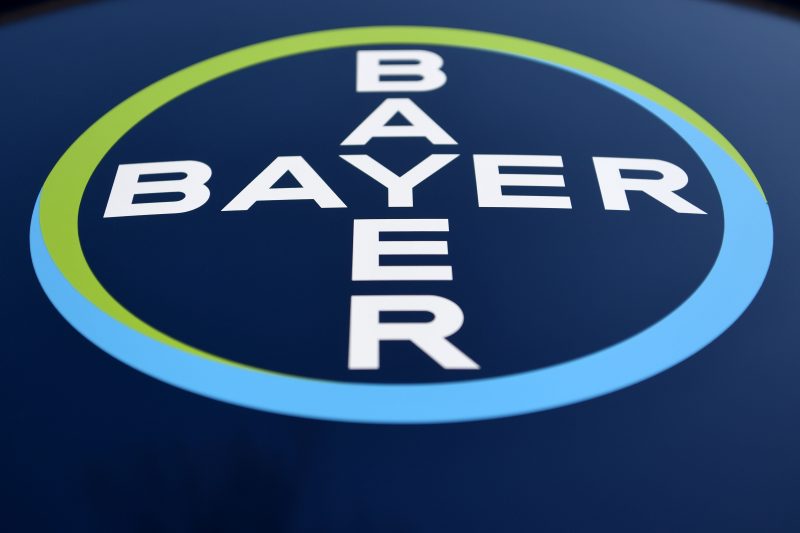Bayer faces new marathon after mammoth Monsanto merger
Taking over seeds and pesticides maker Monsanto slump weighed on German chemicals and pharmaceuticals giant Bayer’s bottom line last year (Patrik STOLLARZ)
Frankfurt am Main (AFP) – German chemicals and pharmaceuticals giant Bayer reported plunging profits for 2018 after taking over US agrichemical firm Monsanto, with years of hard work ahead of the group to fight off legal risks related to the merger and to keep profits flowing in its medicines division.
Net profit at the Leverkusen-based group tumbled 76.9 percent, to 1.7 billion euros ($1.9 billion), as costs from the $63 billion mega-merger as well as one-off effects burdened the bottom line.
Bayer highlighted a windfall in the previous year from selling shares in former polymers division Covestro that made for an unfavourable comparison with 2018.
Operating, or underlying profit before special items grew 2.8 percent to 9.5 billion euros, while revenues rose 4.5 percent to reach 39.6 billion, adjusting for price and currency effects.
The group had to sell off part of its existing seeds and pesticides businesses to rival BASF to get the Monsanto deal past competition authorities, bringing in 4.1 billion euros.
Costs for special items at the group rose from 1.2 billion euros in 2017 to 2.6 billion last year.
And charges linked to the Monsanto takeover weighed in at 2.0 billion euros, while depreciations cost 3.3 billion.
The buyout marked the capstone of Bayer’s transformation into a “focused life science company clearly aligned to the megatrends in health and agriculture,” chief executive Werner Baumann said.
– Marathon challenges ahead –
But while bosses eye future revenue opportunities, the company’s feet are tangled in a thicket of 11,200 cases in the US alleging health problems caused by Monsanto herbicide glyphosate.
A California jury last year awarded a longtime user of the weedkiller almost $290 million after he argued it caused his non-Hodgkin’s lymphoma, although the judge later reduced the award and Bayer has appealed.
A first federal case got under way this week, also in California, one of seven trials scheduled for this year.
“We’ll need a certain number of cases to move through the courts to have an idea of what direction” the risks for the company are headed, Baumann said.
“From our perspective, we are crystal clear that it’s a safe product,” he added, pointing to dozens of scientific studies as well as regulatory findings from major countries that back the company’s position.
Elsewhere in the business, Baumann acknowledged that the company’s pipeline of future pharmaceutical products “could be stronger, there’s no question about it”.
At the moment blockbuster drugs, including anticoagulant Xarelto or cancer treatments Stivarga and Xofigo, bring in 6.8 billion euros of revenue a year.
But many of their patents are set to run out in the mid-2020s, with few candidates to take their place as surefire top sellers.
– Optimistic for 2019 –
Baumann said that Bayer had spent “several million” euros on preparing for the risk of a no-deal Brexit that could see new trade hurdles between the European mainland and Britain, stashing between 8 weeks and 12 months’ supply of many drugs.
But some radioactive treatments like Xofigo can’t be stored long-term, leaving the firm to negotiate “special allowances” to import them, Baumann said.
“Hopefully we won’t need any of it” if the EU strikes a deal with Britain, a market worth around one billion in revenue to Bayer annually, he added.
Worldwide in 2019, Bayer is confident of reaching 46 billion euros in adjusted sales — around four percent higher than 2018 — and lifting operating profit before special items to 12.2 billion.
It plans to sell off business areas like animal health, parts of its over-the-counter medicines unit and Currenta, the spin-off German firm that operates its former chemical parks.
Meanwhile 12,000 workers are set to depart in a restructuring scheme running until 2021, many of them in Germany.
Bayer is working with worker representatives to offer early retirement and other schemes to ease the transition for those leaving, human resources chief Hartmut Klusik said.
Shares in Bayer topped the gainers on the blue-chip DAX index in midday trading in Frankfurt, rising 4.2 percent to reach 69.29 euros.
Disclaimer: This story is published from a syndicated feed. Siliconeer does not assume any liability for the above story. Validity of the above story is for 7 Days from original date of publishing. Content copyright AFP.


